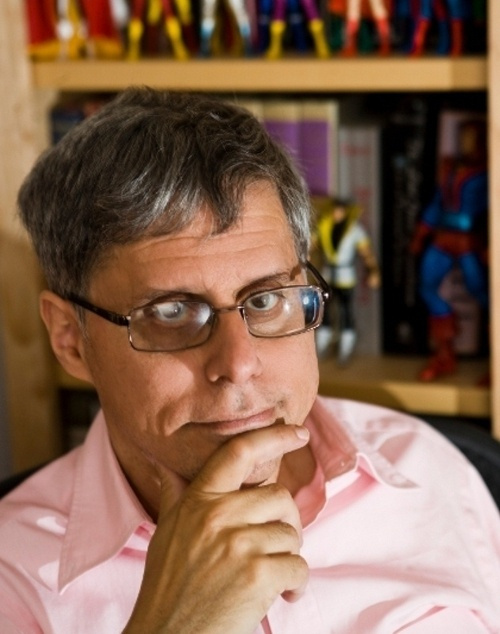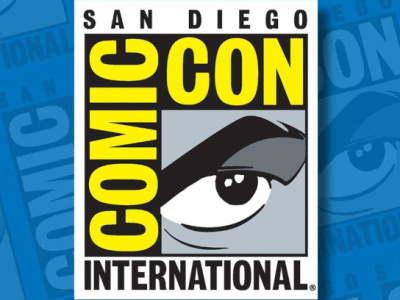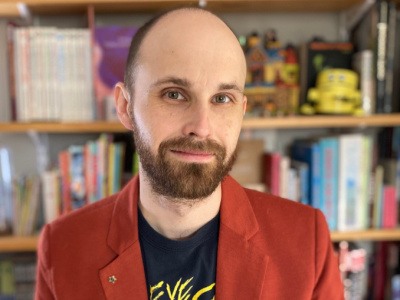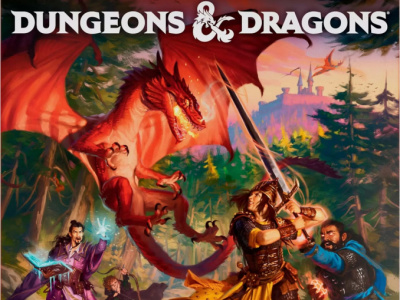Paul Levitz entered comics as a writer, rose to become Publisher of DC Comics, and is now exploring new territory as a writer. In this column, Levitz looks at the induction of Phil Seuling into the Will Eisner Hall of Fame.
This past weekend at San Diego’s Comic-Con International, Phil Seuling (1934-1984) was inducted into the prestigious Will Eisner Hall of Fame, an unprecedented honor (see "Eisner Awards 2025"). The Hall is filled with cartoonists, writers and artists who have shaped American comics or their international counterparts. There’s an editor or two, publishers, even comics fan/historians, but never someone like Phil. Of course, that could simply be because there never was anyone quite like Phil.
You could have encountered Phil as one of the early mail order dealers in Golden Age comics. Or as the proprietor of a used bookstore that offered comics briefly in the late 1960s. Or as the writer of three short mystery stories in the early 1970s. Or even for his quiet role publishing or bankrolling some of the most ambitious fan publications of that era. But he was perhaps best loved as the impresario of over a decade of New York City’s legendary comic conventions that largely invented the model of the modern comic con, flying in iconic guests and scaling up from swap meets to cultural meccas.
It's uncertain exactly why Phil was selected for the Hall by its panel of judges, but it’s very possible none of the above accomplishments were the principal factor. After all, no one who has done similar work has been inducted. It is likely, however, that Phil’s most enduring impact counted in their judgement: his entrepreneurial effort opening up direct sales of new comics to the handful of comic shops that existed in the early 1970s. The distribution model he pioneered with his partner, Jonni Levas, has mutated several times since and continues to change, but earned him the sobriquet of "Father of the Direct Market" (see "Phil Seuling, the Man Who Invented the Direct Market," and "Jonni Levas, a Founding Mother of Direct Market").
Phil’s daughter, Gwenn, accepted the honor for her late father, and his other daughter, Heather, was also present. Both women had worked Phil’s conventions and dealer’s tables in their youth. Gwenn wore a dress that incorporated the covers of several of the program books for her father’s conventions. It’s four decades after Phil Seuling’s passing, and whether at the comic conventions that have grown ten-fold in size since his time, or just passing a rack of new comics in a store devoted to comics and popular culture, we still live in the shadow of his imagination.
The opinions expressed in this column are solely those of the writer, and do not necessarily reflect the views of the editorial staff of ICv2.com.
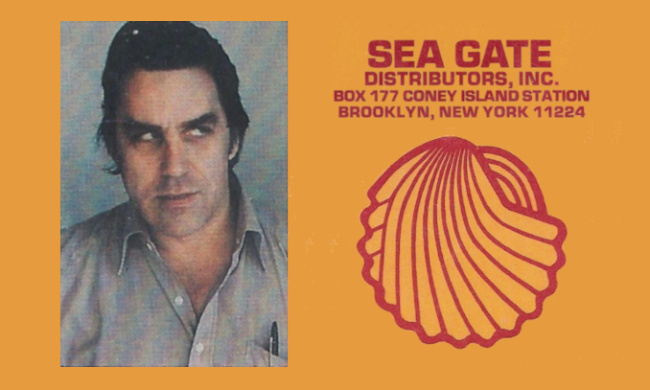
Column by Paul Levitz
Posted by Paul Levitz on August 5, 2025 @ 4:06 am CT
MORE COMICS
Column by Rob Salkowitz
August 5, 2025
In this week's column by Rob Salkowitz, he looks at the industry's biggest show, held in the midst of some existential issues.
On Growth in 2024, YTD 2025, Retailer Tiers, New Functionalities
August 5, 2025
We talked about the growth of comics on the platform last year, what's happening in 2025, the use of retailer tiers, and new functionalities being used for comics.
MORE COLUMNS
Column by Scott Thorne
August 4, 2025
This week, Scott Thorne addresses some comments on last week's column and the right price for starter products.
Column by Scott Thorne
July 28, 2025
This week, columnist Scott Thorne comments on the Edge of Eternities prerelease and on Magic: The Gathering news from the Hasbro earnings report.



